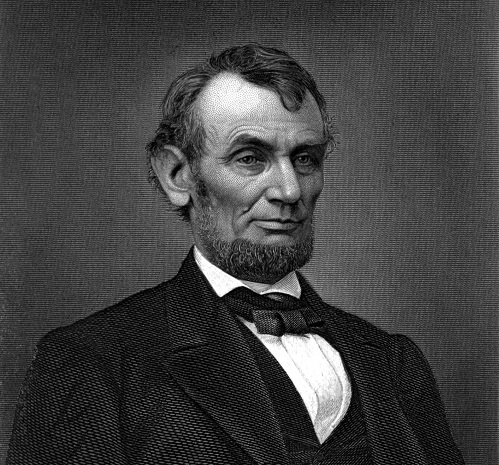April 15, 2015 marks the 150th anniversary of the death of Abraham Lincoln, the nation’s 16th president and one of its most famous personages. Few other American figures have been quite as celebrated, eulogized or invoked in the public consciousness, and fewer still have taken on the stuff of legend that Lincoln assumed both during and beyond his lifetime. His story is quintessential American myth: born poor in a log cabin, self-taught, freed the slaves, died tragically. But it is in interpretations of his life and beliefs that he took on the deep meaning and nearly universal praise his image and reputation enjoy today.

His death itself turned into a major media event. In The Lincoln Assassination: Crime and Punishment, Myth and Memory, Harold Holzer and Frank Williams state “Even if most pictorial representations of Lincoln’s death lacked realism and good draftsmanship, all of them— paintings, popular prints, and photomontages— deserve renewed historical attention today because of their staggering popularity at the time they were issued, and their decisive impact on popular culture and American collective memory.” Popular images of Lincoln’s death, while not always accurate, helped to promote him as a victim to the cause of freedom, a quotidian American value and an important factor in his popularity today.
Another key to Lincoln’s legendary status lies in the multiple aspects of his life and personality, which remain symbolic and open to appropriation. Lincoln served in the military but also owned a small business (a general store which failed), reinforcing modern-day conservative values. Additionally, Lincoln wrote some of the most beloved speeches in American history, calling for mercy and remembrance. His Second Inaugural Address includes the famous line “With malice toward none, with charity for all,” one of the most quoted lines of any president. His speeches and his achievements regarding Emancipation represent a more democratically inclined leader whose work guaranteed freedom for disenfranchised African Americans. This multifaceted president therefore symbolizes innumerable values, and he has been claimed by a number of causes as one of their own. “Americans of every persuasion have wanted to pin their tail on Lincoln’s donkey in an effort to gain status for their personal cause since shortly after his death”, Edward Steers writes in his book Lincoln Legends: Myths, Hoaxes and Confabulations Associated with Our Greatest President, a statement not far from the truth. Lincoln is called upon to evoke justice in fields as diverse as labor.
Beyond Lincoln as a champion of various causes or a martyr to American ideals, Lincoln has also been portrayed in numerous works of fiction and art. Walt Whitman’s “O Captain! My Captain!” praises Lincoln’s achievements while mourning his violent demise. African-American poet James Weldon Johnson exalts Lincoln’s memory in his poem “Father Father Abraham”, comparing him to the ancient Jewish patriarch Abraham. But not all portrayals are so reverent. During his lifetime, he and members of his cabinet were skewered in “The President’s Ball”, a 19th century music hall tune. Modern culture has also satirized his image, as in Seth Grahame-Smith’s well-known Abraham Lincoln: Vampire Hunter. In short, there is an Abraham Lincoln for everyone.
This is not to say that the man himself becomes invisible under his many roles. There are numerous fine biographies of Lincoln. David Colbert’s biography focuses on ten key dates in Lincoln’s life. K. M. Kostyal and Doris Kearns Goodwin’s book Abraham Lincoln’s Extraordinary Era primarily concerns itself with his Civil War history in the White House. For a single-volume overview of Lincoln’s life, few books come as recommended as David Herbert Donald’s Lincoln. However you wish to commemorate the passing of one of American’s finest leaders, the IU East Library provides innumerable options to meet your curiosity.
Want to know more? We can help! Contact us at iueref@iue.edu.

